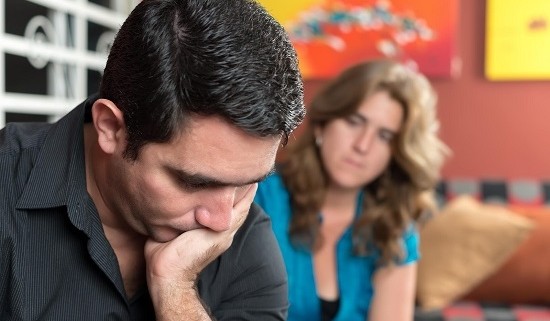Helping Someone With Depression
Living with someone who is battling depression can be disheartening. Your loved one is suffering, and in the process has become more isolated and distant. You might feel stymied at every attempt to help them, with feelings of inadequacy and even frustration bubbling up. You just want your loved one to be him or herself again, to be the person you know.
While helping someone with depression might be a baffling experience, there are some ways that you can still be there for them as a loving source of support. Just recognizing their pain as real and not minimizing it is huge for them. Taking that a step further by offering to help them get some professional help and guidance can be life saving.
How to Tell If Someone is Depressed
The first step to helping someone with depression is to understand the signs and symptoms of major depression. By gaining some basic understanding of what to look for, you may help them seek treatment sooner, potentially improving their treatment outcome. There are nine basic symptoms of major depressive disorder as outlined in the DSM-5, the psychiatric manual for diagnosing mental health disorders. If a cluster of the symptoms persists for more than two weeks, your loved one should be evaluated.
The diagnostic criteria for major depressive disorder include:
- Depressed mood most of the time.
- Markedly diminished interest or pleasure in daily activities once enjoyed.
- Significant weight loss or gain.
- Insomnia or hypersomnia.
- Psychomotor agitation or retardation.
- Fatigue or loss of energy.
- Feelings of worthlessness or excessive or inappropriate guilt.
- Diminished ability to think or concentrate, or indecisiveness.
- Recurrent thoughts of death, recurrent suicidal ideation without a specific plan, or a suicide attempt or a specific plan for committing suicide.
Initially, the individual should receive a thorough physical examination to rule out an underlying medical condition that might be the cause for the symptoms. Once a health condition is ruled out, the next step is to be assessed by a psychologist or psychiatrist who can diagnose the mental health condition and then devise a treatment plan.
The 6 Best Ways of Helping Someone With Depression
There are some effective ways to support a loved one with depression. These include:
- Acknowledge their depression is real. Too often people are told that it is “all in your head,” leaving the individual to feel ashamed and dejected. Instead of denying their struggles, offer to get them help for it.
- Remain engaged. The person suffering from depression may tend to disconnect from social and familial interactions. Stay on their radar by small gestures, such as a note, card, text message, flowers, a baked treat, that let them know you are there for them.
- Don’t pretend to know their pain. Depression is extremely disabling, impacting all aspects of daily living. Unless you have also had a bout with depression, do not attempt to say you know how they must be feeling.
- Offer the right kind of advice. The best advice you can give your loved one is the suggestion that they see a depression specialist who is professionally trained to help. Don’t suggest they just take a hot bath or go for a walk, assuming a quick fix will result.
- Listen when they are ready to talk. Sometimes after a period of isolation the individual will feel ready to discuss what they are going through. They may not have a real understanding of what all is involved in their mental state, but if they want to talk about it, listen.
- Ask if they are contemplating suicide. While this is the most difficult possibility to imagine, it is a very real risk with seriously depressed individuals. Be brave enough to ask the question and to act on their answer if it is “yes,” getting them immediate help.
Treatment for Depression
After a thorough interview, including diagnostic tools and questionnaires for specific diagnoses, the mental health treatment provider will determine a course of treatment. Each individual’s treatment plan will be tailored to their unique diagnostic profile, mental health history, and treatment needs. The traditional treatment protocol for patients with depressive disorder is a combination of antidepressants and psychotherapy. In many cases, however, antidepressants will not effectively reduce depression symptoms, so alternative therapies, such as transcranial magnetic stimulation (TMS) can be very helpful. TMS can help reset the brain chemistry that is out of sync in many depression patients, resulting in improvements in sleep, mood, concentration, and energy.
Anew Era TMS & Psychiatry is a Full-Service Depression Treatment Center Specializing in TMS Therapy
Anew Era TMS & Psychiatry is a leading provider of outpatient depression treatment in Orange County, California. Anew Era TMS & Psychiatry offers a full-spectrum of mental health interventions for depression and co-occurring anxiety or trauma, including medication, psychotherapy, and TMS therapy. Helping someone with depression can be the most loving thing you ever do for them. For more information about our depression treatment options please contact Anew Era TMS & Psychiatry today at (888) 503-1549.





